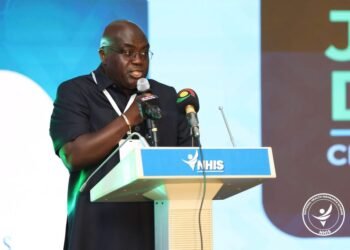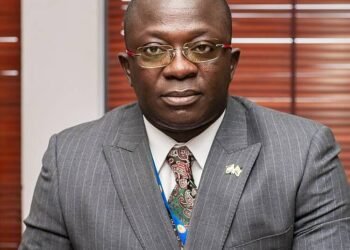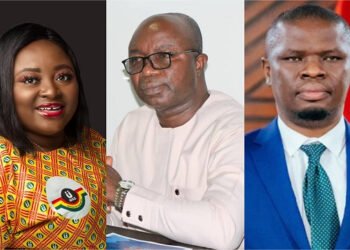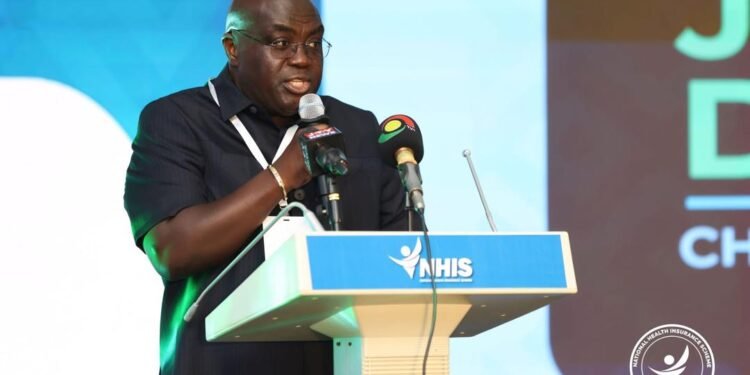The recent appointment of Kojo Choi as Ghana’s Ambassador to South Korea has reignited a long-standing national conversation about dual citizenship and its implications for public service eligibility.
According to Professor Stephen Kwaku Asare, a prominent legal scholar and Democracy and Development Fellow at CDD-Ghana, this development is not just a diplomatic milestone but also a critical moment in Ghana’s constitutional journey.
Prof. Asare emphasized that Choi’s appointment underscores the pressing need to revisit the outdated legal framework that restricts Ghanaians with dual citizenship from holding key public offices.
Accordingly, Prof. Asare expressed strong support for the new envoy and highlighted the symbolic significance of this appointment in an increasingly globalized world.
“The Dual Citizenship Rights Protection Society (DUCRIPS) warmly congratulates Kojo Choi on his appointment as Ghana’s Ambassador to the Republic of South Korea.
“We commend His Excellency, the President, for his openness in acknowledging this issue and for his expressed commitment to amending the Constitution to allow dual citizens to serve fully in Ghana’s public life.”
Professor Stephen Kwaku Asare

This show of support is not just ceremonial. According to Prof. Asare, DUCRIPS stands poised to aid any and all reform initiatives aimed at reshaping the constitutional framework to be more reflective of Ghana’s evolving citizenship landscape.
He described these changes as vital steps toward a more inclusive and representative democracy, one that allows for full participation by all Ghanaians—whether natural born, naturalized, or registered.
The significance of Choi’s appointment is magnified by the broader context of Ghana’s growing diaspora and the persistent legal barriers that prevent many of them from contributing more directly to public life.
Amendment Bill Passage To End Dual Citizenship Restriction
Prof. Stephen Asare also called on Parliament to accelerate the passage of the Constitution Amendment Bill (2025), which aims to remove the long-standing constitutional restriction preventing dual citizens from occupying public office.
He emphasized that swift action on this bill would mark a significant step toward modernizing the nation’s laws to reflect its evolving citizenry.
“We urge Parliament to fast-track consideration of the Constitution Amendment Bill (2025), given that it made substantial progress in the 8th Parliament but was unavoidably stalled toward the end of the legislative term.”
Professor Stephen Kwaku Asare

However, he remains optimistic that bipartisan support and widespread public interest will help push it across the finish line this time.
He also called the bill a unique and timely opportunity to rectify what he described as an exclusionary provision in the country’s highest legal document.
The aim, he said, is to reinforce the idea that Ghana is home to all of its citizens, regardless of their form of citizenship. He added that this would not only boost national unity but also unlock the development potential of Ghanaians living abroad.
Prof. Henry Kwesi Prempeh, Executive Director of CDD-Ghana, also echoed similar sentiments.
He applauded former President Mahama for what he termed “outside-the-box thinking,” further noting that Ghanaian identity should not be narrowly defined by racial or ethnic lines.
According to him, citizenship should be a unifying force rather than a divisive one, especially in a nation as diverse and globally connected as Ghana.
Momentum Grows for Inclusive Citizenship
Meanwhile, the broader conversation on dual citizens in Ghana has gathered momentum in recent years, particularly as members of the Ghanaian diaspora have become more politically and economically active.
Despite their sizable contributions to the national economy through remittances, investment, and knowledge exchange, many dual nationals remain excluded from roles that would allow them to directly influence governance and policy.
The appointment of Kojo Choi is now seen as a potential turning point—a moment that could mark the beginning of a paradigm shift in how Ghana engages its global citizenry.

If the proposed constitutional amendments are passed, they could pave the way for a more inclusive definition of national identity and open new pathways for engagement in public life.
Observers note that this change would also align Ghana more closely with other democracies that have long since embraced dual citizenship in public office.
In today’s interconnected world, many nations recognize that dual nationals often bring valuable international experience, diverse perspectives, and strong professional networks that can serve national development goals.
The momentum building around this issue suggests that the dual citizenship debate is far from over. But for now, Choi’s appointment is being celebrated as a step in the right direction—one that may well inspire lasting legal and societal reforms.
READ ALSO:Ato Forson Defends Government Spending as Prudent and Targeted























